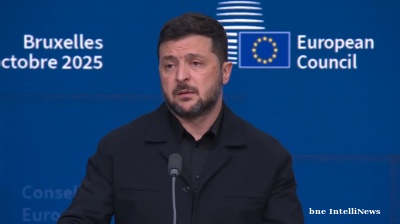Saudi Arabia's cabinet approved a decision to join the Shanghai Cooperation Organization (SCO) on April 6, cementing the increasingly close ties between the Middle East oil producer and China.
The move is also another brick in the emerging closer ties between what can be called the BRICS bloc of leading emerging markets, the creation of which has been catalysed by Russia’s invasion of Ukraine a year ago.
The SCO is a political and security union of Eurasian states and a key institution used by Russia and China to unite and facilitate co-ordination interests in the Eurasian and Asian space, outside the Western-dominated organisations. Membership includes Russia, China, Central Asia and India, among others. The US also applied for observer status of the SCO in the early 2000s but was rejected in 2005.
The decision comes only a month after China brokered a reconciliation between Iran and Saudi after a seven-year break, brokered by Beijing, seen as a major diplomatic breakthrough.
Washington objected to the tie-up, citing security concerns, which were ignored by Riyadh. Previously close, tensions between Riyadh and Washington has risen dramatically in recent years, since the US became a net exporter of oil following the so-called shale revolution. Previously the US was dependent on Saudi for its oil supplies.
Saudi also thumbed its nose at US objections to OPEC+'s decision last month to cut production by more than 1mn barrels per day (bpd) of oil to push up prices. The White House said that production should be increased to bring prices down. Analysts have speculated that the decision to cut production was partly made to support Russia, a member of OPEC+, by earning more money from its oil exports.
The SCO is one of many non-aligned organisations that is being built up the BRICS bloc that is becoming increasingly active. Russia has taken over the chairmanship of the Eurasian Economic Union (EAEU) this January and is intending to transform the trade club of a number of Former Soviet Union (FSU) into a more dynamic organisation of economic integration as well as expand its membership to more countries in Southeast Asia.
China is working to expand its ties and influence in Eurasia as part of its “tianxia” (“All Under Heaven”) foreign policy that stresses building mutually beneficial ties with neighbours. Eurasia has become a major focus of both countries as relations with the West unravel in what is becoming an increasingly fractured world. China in particular is looking to develop a land bridge from Asia to Europe that doesn't depend on maritime transport and so frees it of fears of interference by the powerful US navy.
According to the Saudi state news agency SPA, Saudi Arabia has approved a memorandum on granting the kingdom the status of a dialogue partner within the SCO – the first step towards full membership in the mid-term, which was discussed during a visit by Chinese President Xi Jinping to Saudi Arabia in December 2022, reports Reuters.
The SCO was set up Russia, China and the ‘Stans of Central Asia in 2001 to better co-ordinate economic and security interests. It has since been expanded to include India and Pakistan, with Iran also expected to join as a full member next year. As a core concept, the organisation is based on the principle of creating a “multipolar world that also lies at the heart of Russia’s and China’s foreign policies.
It covers 60% of the Eurasian continent (by far the biggest single landmass on Earth), 40% of the world’s population, and more than 20% of global GDP.
Saudis membership of SCO also improves already good ties between Russia and the Middle East, where Russia has won kudos as a “honest broker” in mediating in difficult relationships between the likes of Saudi, Iran and Israel; Moscow almost uniquely has good relations with all of them.
The decision by Saudi Arabia to join the SCO followed an announcement by the state-owned national oil giant Saudi Aramco that it has just raised its multi-billion dollar investment in China by finalising a planned joint venture in north-east China and acquiring a stake in a privately controlled petrochemical group.
The growing influence and membership of the BRICS bloc institutions has shaken the White House, which has been touring the world on a campaign to bribe, bully or cajole countries from Africa, Asia and Latin America to support the Western-led sanctions regime on Russia following the start of the war in Ukraine. However, the reception to US entreaties has been mixed, as many countries have been subject to US bullying in the past themselves and more fear that the same sanctions regimes may be used against them should relations with the West sour in the future. The BRICS bloc offers a welcome counterweight to the predominance of the Western hegemony.
China’s diplomacy has also recently become much more aggressive after President Xi Jinping met with President Vladimir Putin in Moscow on a three-day visit to ostentatiously show support for the Russian leader. Analysts point out that Xi’s trip marks a new phase of more aggressive diplomacy on the international stage and can be seen as an overt challenge to the US claim to be the “leader of the free world.”
Washington views China's attempts to exert influence around the world as a threat and US Secretary of State Antony Blinken called China one of the US’ main “rivals” in his first major foreign policy speech in 2021.
However, Saudi Arabia and other Gulf states have voiced concern about what they see as a withdrawal from the region by the United States, their main security guarantor, and have moved to diversify their partners by turning to China and Russia.
At the end of December 2021 and into January 2022 China held a series of meetings in Beijing with foreign ministers from Saudi Arabia, Kuwait, Oman and Bahrain, plus the secretary-general of the Gulf Cooperation Council (GCC). The principal topics of conversation were to seal a China-GCC free trade agreement (FTA) and to forge “a deeper strategic co-operation in a region where US dominance is showing signs of retreat”.
China first cemented close ties with Saudi Crown Prince Mohammed bin Salman (MbS) from around 2015, when the prince proposed floating Saudi Aramco in a $100bn IPO. China offered to buy the 5% stake on offer and although the deal didn't go through, MbS has been grateful to Beijing ever since, according to experts.
Relations with Russia also dramatically improved following the 2014-2016 Oil Price War, when the kingdom crashed prices in an unsuccessful bid to wreck the US shale oil industry and that almost bankrupted the kingdom.
At that point, Russia had stepped in to support the OPEC oil production cuts in late 2016 aimed at bringing oil prices back to levels that allowed OPEC members to begin to repair their decimated finances. That support was formalised by Russia’s membership of the OPEC+ cartel.
News
Category 5 hurricane Melissa bears down on Jamaica with Haiti and Cuba in storm's path
A catastrophic Category 5 hurricane was bearing down on Jamaica on Monday, October 27 afternoon with sustained winds of up to 282kph (175mph), threatening to become the strongest storm the Caribbean island has ever experienced.
.jpg)
US senator tells Maduro "head to Russia or China" as warships close in on Venezuela
A senior US Republican senator has warned that Venezuelan President Nicolás Maduro's time in power is running out and suggested he leave the country, as military tensions in the Caribbean continue to escalate.

Milei celebrates resounding victory in Argentina's midterm elections
Argentine President Javier Milei scored a major win for his La Libertad Avanza (LLA) party in Argentina's October 26 midterm legislative elections, as the party obtained approximately 40.84% of the nationwide vote with 99.14% of the votes counted.

Zelenskiy accuses China of aiding Russia’s war effort through industrial and military support
Ukrainian President Volodymyr Zelenskiy accused China of materially supporting Russia’s military-industrial complex, providing key technologies and resources that have enabled Moscow to sustain and scale its war effort against Ukraine.




